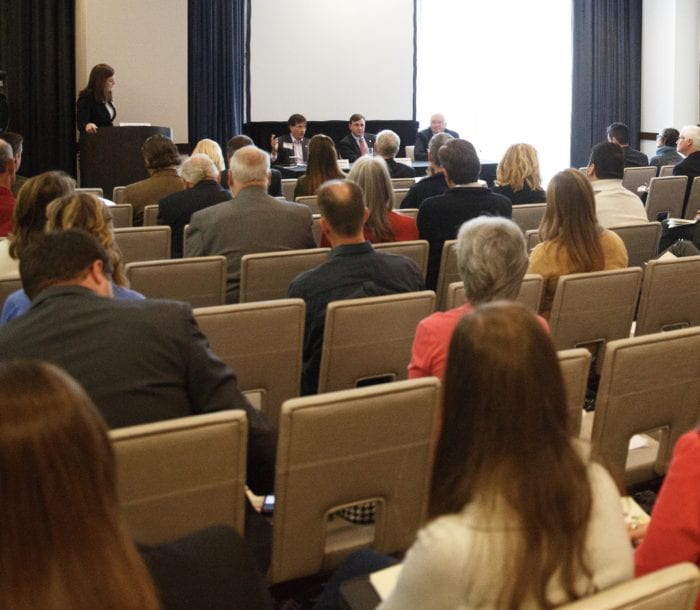By Lisa Scott
The League of Women Voters (LWV) has a strong commitment to open government and civic engagement. Protecting our right to know is integral to the health of our democracy. One important way to ensure that decisions are made with public input and oversight is for citizens to observe government meetings.
New York State’s Open Meetings Law, often known as the Sunshine Law, went into effect in 1977. Amendments that clarify and reaffirm your right to hear the deliberations of public bodies became effective in 1979.
In brief, the law gives the public the right to attend meetings of public bodies, listen to the debates and watch the decision-making process in action. It requires public bodies to provide notice of the times and places of meetings and keep minutes of all action taken.
The Open Meetings Law provides the public with the right to attend meetings of public bodies, but it is silent concerning the ability of members of the public to speak or otherwise participate. Although public bodies are not required to permit the public to speak at their meetings, many have chosen to do so. In those instances, it has been advised that a public body should do so by adopting reasonable rules that treat members of the public equally. (To learn more about the Open Meetings Law, visit www.dos.ny.gov/coog/right_to_know.html.)
To start exercising your rights, go to a government meeting as an observer so that you become familiar with the procedures and rules and the issues. Acquaint yourself with the protocols for public comment, so that you can speak to these issues when appropriate.
In order to encourage every Suffolk County resident to become familiar with their elected officials, the LWV compiles and prints a 28-page booklet annually called the Directory of Public Officials (DPO), a guide to elected federal, state, county, town and local officials. You’ll know how to contact them — addresses, telephone numbers, email addresses and websites. You’ll see salaries, terms of office, whether there are term limits and whether they are up for election each year.
The DPO includes a section with a breakdown and details of the Suffolk County budget, as well as a color map of Suffolk County legislative districts and a list of Suffolk County legislative committees with members, meeting days and times. Phone contacts for key Suffolk County departments and agencies are included too. (The Directory of Public Officials can be viewed by visiting www.lwv-suffolkcounty.org/files/DPO2017_ 2.pdf.)
State, county, town, village, library and school district websites are good sources for general, committee and board meeting schedules, as well as agendas for upcoming meetings and minutes of those that have already occurred.
Local media (newspapers and community websites) report on a great many issues and government meetings. However, you may have concerns about issues that are not covered by local media and should take responsibility to observe and participate when these issues are discussed at government meetings. Be an informed, engaged citizen and participate. Democracy is not a spectator sport!
Lisa Scott is the president of the League of Women Voters of Suffolk County, a nonprofit, nonpartisan organization that encourages the informed and active participation of citizens in government and influences public policy through education and advocacy. For more information, visit www.lwv-suffolkcounty.org, email [email protected] or call 631-862-6860.





